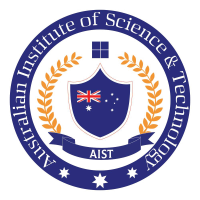
IT Networks and System Administration courses in Cairns
Course providers in Cairns
The following providers offer IT Networks and System Administration courses in Cairns.














































Career Pathfinder
Skills shortages + AI Exposure
Discover in-demand careers and understand how each role may be impacted by AI and automation.
- See in-demand occupations across Australia
- Check AI Exposure ratings
- Compare training duration and average income
Further reading


Career Spotlight: Computer Network Professionals
26th November 2019
How to get started in Information and Communications Technology (ICT)
26th September 2019All courses
- ICT60220 Advanced Diploma of Information Technology
- ICT50220 Diploma of Information Technology (Advanced Networking)
- ICT30120 Certificate III in Information Technology
- ICT40120 Certificate IV in Information Technology (Systems Administration Support)
- ICTSS00109 Entry to Tech Skill Set
- ICT30120 Certificate III in Information Technology (Programming)
- ICT30120 Certificate III in Information Technology (Basic Cloud Computing)
- ICT30120 Certificate III in Information Technology (Basic Cyber Security Awareness)
- ICT60220 Advanced Diploma of Information Technology (Cyber Security)
- Bachelor of Science (Electrical Engineering)
- ICT40120 Certificate IV in Information Technology
- ICT40120 Certificate IV in Information Technology (Cloud Computing)
- Professional Certificate of Competency in Advanced TCP/IP-Based Industrial Networking
- Professional Certificate of Competency in Industrial Internet of Things (IoT)
- Professional Certificate of Competency in Industrial Data Communications
- Professional Certificate of Competency in Smart Grids
- ICT40120 Certificate IV in Information Technology (Cyber Security)
- 22603VIC Certificate IV in Cyber Security
- ICT50220 Diploma of Information Technology (Cyber Security)
- 52867WA Advanced Diploma of Industrial Data Communication, Networking and IT
- ICT40120 Certificate IV in Information Technology (Networking)
- Cyber Security for Managers: Elevate
- PSP50316 Diploma of Government Security
- ICT50220 Diploma of Information Technology
- Graduate Diploma of Engineering (Safety, Risk and Reliability)
- Professional Certificate of Competency in Digital Twins and Simulation Monitoring
- Professional Certificate of Competency in Dual Fuel Engines
- Professional Certificate of Competency in Fundamentals of Electric Vehicles
- Professional Certificate of Competency in Project Management for Engineers and Technicians
- BSB30120 Certificate III in Business (Customer Engagement)
- BSB40120 Certificate IV in Business (Cyber Security)
- 52911WA Graduate Certificate in Internet of Things (loT) for Engineering (Foundations)
- 52914WA Graduate Certificate in Mechatronics
- Software Engineering: Transform
- Professional Certificate of Competency in 5G Technology and Services
- BSB50820 Diploma of Project Management
- AWS Cloud Computing Professional
More about IT Networks and System Administration courses
For those interested in advancing their careers in the IT Networks and System Administration field, Cairns offers a variety of higher education courses that cater to experienced learners. Students can choose from a selection of four comprehensive courses designed to equip them with the necessary skills and knowledge. The Advanced Diploma of Information Technology (ICT60220) is a popular choice for individuals looking to deepen their expertise in this constantly evolving field. For further details, explore the course page here.
If your aspirations lie in engineering, the Bachelor of Engineering (Honours) with a focus on Electronic Systems and the Internet of Things (IoT) Engineering offers a robust curriculum aimed at developing the technical prowess required in today’s job market. This qualification can open doors to various engineering roles, allowing graduates to contribute meaningfully to technological advancements. For more information about this course, visit the following link: here.
Furthering your education in technology can also lead to exciting opportunities in information security. The Bachelor of Information Technology (Cyber Security) programme prepares students to combat increasing cyber threats, making them valuable assets in any organisation. For those who are interested in this prestigious qualification, details can be found here. Each of these courses is delivered by reputable training providers located in or near Cairns, offering students a chance for face-to-face learning.
Local institutions such as Federation Academy, James Cook University (JCU), and Central Queensland University (CQU) provide accessible training options to cater to your learning preferences. JCU, for instance, offers the Bachelor of Engineering (Honours) programme, making it an excellent choice for students residing in Cairns who prefer to study on campus.
With a total of four IT Networks and System Administration courses available, Cairns provides ample opportunities for those seeking to elevate their expertise within the IT industry. By enrolling in one of these advanced courses, learners can pave their pathways to various job roles, including IT Network Manager, Systems Administrator, and Network Security Specialist. Discover more about these available programmes on the Courses.com.au webpage and take the next step towards an enriching career in IT.
